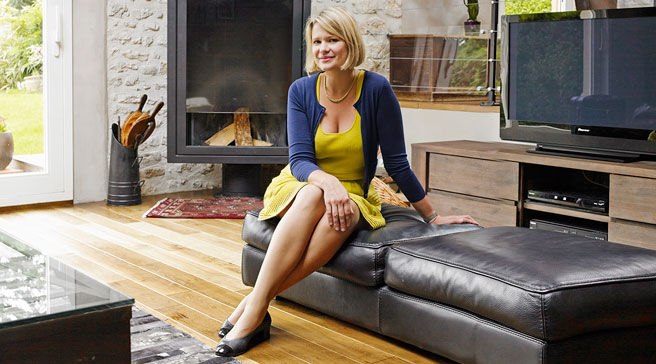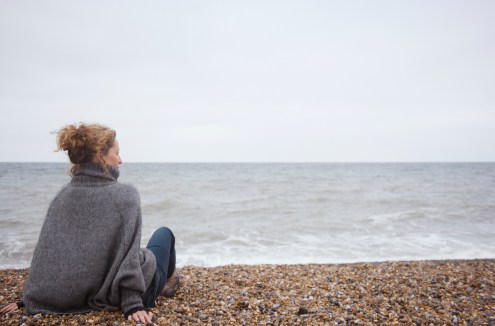How do you bring two families together successfully?
Bringing together two families can throw up all sorts of issues and problems you never thought of – but it can be done, as long as you give yourself a break and realise it takes a bit of time, writes Dr Ilona Boniwell

I have just moved house with my new husband and our three children – two daughters from his previous marriage and my 10-year-old son. I split from my partner over five years ago and I’ve been lucky enough to find love again, but we are struggling a little trying to get our new ‘blended’ family to come together harmoniously and it’s causing some tension between my new husband and me.
Who, of the hundreds of thousands of parents making a leap of faith to form a second (or even a third) family didn’t have a vision of new-found love between stepfather and stepson, of each other’s children playing happily together on a beach, of long relaxed dinners outside amid the big family in the heady air of a summer evening? I’m not saying it can’t happen. It can! Sometimes… But how many were prepared for the reality – screaming step-siblings fighting over a larger bedroom or realising on one of those summer days that your new hubby does love his own child more than yours after all?
Famille recomposée is a French term for a family in which at least one of the parents has one or more children from a previous union. This type of family accounts for between 10 to 30 per cent of all families, depending on the country, and is the fastest-growing family arrangement worldwide. I find ‘stepfamily’, the English equivalent of famille recomposée, does not quite do it justice. The French wording also allows for an easy pun, famille decomposée, a ‘decomposing family’, which is sometimes a little closer to the reality. And I talk from experience. I work as a psychologist with a successful career in positive psychology, a science of happiness and human flourishing. I’ve written or edited six books, launched a European association, created and run a university Masters programme, been interviewed for newspapers, magazines and TV programmes, and travelled the world presenting at conferences. So far so good, right? But there is the other side of me. I am 37, I live in France, and between us, my husband and I have five children. My teenagers are 16 and 14, his are 15 and 13. To these four adolescents my husband and I, in all the romantic passion of having finally found each other, voluntarily added a baby, now 18 months old.
My older boys live with us all the time, and my husband’s older children are with us 50 per cent of the time, sometimes more. This means that, depending on which week it is, we have between three and five children at home at any one moment. Given that the majority of the kids are boys, daily dinners in our house are reminiscent of either convivial dinner parties, on a good day, or, when I am low on energy, an army canteen. Regardless of how much food is on the table, there is nothing left, almost never…
And this is where the guilt starts creeping in. I have divorced once already, what would happen if this new family doesn’t work either? I can’t do it to my kids, I really can’t. The data is clear. Children of divorced parents have a higher chance of behavioural problems and deficits in affective and cognitive domains than those of non-divorced parents. What’s worse, contrary to earlier assumptions that such difficulties are short-lived; there are long-term consequences, too – from health problems through to not being as well-equipped to form and keep a family later on. Apparently, 70 per cent of children coming from divorced families themselves consider divorce an adequate solution to marital problems (even if the family has children), compared to only 40 per cent of children from non-divorced families. What did I get my kids into? I wish I didn’t know that. Maybe I wouldn’t be quite so scared.
I’ve spent years giving people scientifically based advice on how to live their lives. But it is not the science per se that makes the most difference to me on days when I feel it’s not working out, but words I first heard from Dr Tal Ben-Shahar, who runs a Harvard undergraduate course on positive psychology (which has become the most popular class at the college): ‘Give yourself the permission to be human.’ I cried when I first heard them, they made sense instantly. The permission to feel all the emotions, to not always be perfect, to be a work in progress, to make mistakes, even those with high cost, even those with consequences for others, not only myself? The permission to be scared, the permission to try again, even if (statistically) my chances of success are not so high? Statistics also say that a remarriage after the age of 35 has substantially higher chances for longevity, and there is an emerging line of research examining the positive consequences of divorce for children. Fingers crossed.
Dr Ilona Boniwell is our expert on family, and is one of the most respected positive psychologists in the world. She lives with her husband, their toddler and four teenagers
More inspiration:
- Read Happier: Can You Learn To Be Happy? by Tal Ben-Shahar (McGraw Hill, £10.99)
- Watch Ilona’s TEDx talk Educating for Happiness and Resilience
Photo: Victoria Birkinshaw








